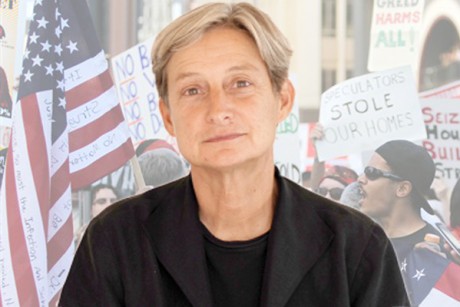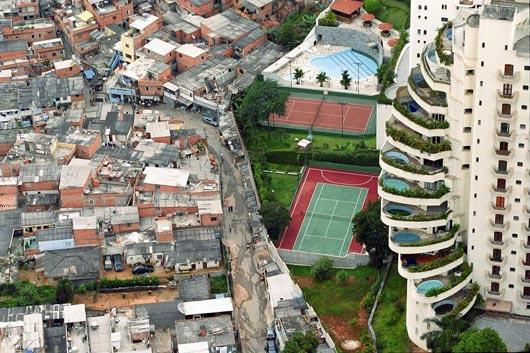Serendip is an independent site partnering with faculty at multiple colleges and universities around the world. Happy exploring!
Notes Towards Week 12 (Nov 22): Points of Contact
bringing us into this space-->
"symphonies of science and diffraction" (from Gavi and chelseam)
Haiti Women and Girls Vulnerable to Sexual Violence
"unless we agree that the world should not be the way it is … there is no point of contact,
because the world that is satisfying to us is the same world that is utterly devastating to them"
(Juan Segundo, qted. by Paul Farmer, Pathologies of Power, p. 157)
I. Anne: coursekeeping
thanks to S.Yaeger & jmorgant for snacks; next week: Katie Randall & Kammy
also for next week: read all of Chris Cleave's novel Little Bee
II. beginning where we ended: the trigger event of "Over It" --> and our not being over it....
wanting to take some time now to say what we understood to be happening, in class and on-line:
not re-traumatizing, but creating space to re-visit in any way--
here, on-line, conferences, e-mail...
* AmyMay: I would suggest a "trigger warning" before bringing up such a personal issue in class. This would allow people to decide in advance if the topic is something they are prepared to discuss openly in the presence of others. Personally, these are issues I want to talk about, and that I want other people to talk about. It was very powerful for me to hear things that I feel deeply personally about come from many of the people in our class (in the "in response to __ we propose __" portion). It was one of the few times I've felt truely understood, like my voice was being heard without me having to try to find the words. Many of you got it. That means more to me than I could ever say. Though it was emotionally exhausting, by the end I felt we were bodies in alliance.
* Kaye: I too have been thinking a lot about Tues night's class and wonder if trigger event warnings would have prevented the powerful learning that took place. do we need to meet each other in our precarity if we are to have real conversations and relationships. If people knew it what we were going to do, they might not have come to class or have built up their defenses so only part of them was there.
* S. Yaeger: What surprised me was that last night's call for litanies and group discussions actually compelled me to be louder and more assertive. I think the reason for that is multi-fold. First, though we haven't designated our classroom a "safe space" in the way that support groups name spaces, there is a general atmosphere of seeking to understand that makes the space safe, at least to me. The fact that we have all come to a class like this and are working at chipping away our understandings of sex, gender, biology, and even physics together makes it much easier to imagine that we are also working at understanding one another. Second, the format of creating a litany by distilling our complex reactions to the piece down to a few words made it feel much less like I was being asked to expose myself forever, and more like I was being allowed to expose a fleeting, though resonating request. Finally, in hearing the lines being called out and allowed to sink in, I felt very much a part of a larger whole, for the first time this semester.
* jfwright: the way in which Barad embodies the electron is a pretty decent representation of the way I feel about the Right to Appear as it relates to gender non-normative and intersex victims of rape and sexual assault.
* Kaye: about "appearing": consider the differences between how embodied appearances in communities like our class and virtual appearances on Serendip are experienced. Speaking your words out loud in front of people who are looking at you and whom you are looking at has a different emotional valence that posting the same words on-line.
* esseitee: By coming to class each week, we are appearing. By speaking freely, we are appearing. And, even when remaining silent but physically present, we are still appearing.
* AmyMay: I think the right not to appear, or to disappear, is just as important as the right to appear .... How can we assert our right to appear politically while maintaining our right not to appear personally? I think alliances of bodies who do and do not wish to appear is essential to this aim.
* charlie: To Anne and Kaye, thank you. Thank you for not backing down from a potentially scary topic for a no-holds-barred, open discussion class. It is important for rape and sexual assault, as well as our other discussion topics, to be talked about. If our thoughts and opinions are not heard on these subjects, they simply get swept under the rug, ineveitably only making them bigger, scarier, and even harder to approach. Thank you for being brave enough to go there.
* Shlomo: When even GenSex professors and students (myself included) make elementary mistakes when introducing and discussing rape and sexual assault ideas, where is the hope?
* Gavi's response to Kaye's question re: quantum integrity: Maybe, the idea that we do not have an overarching framework of integrity (as consistency) can free us to constantly question the lives and narratives we have constructed and reconstructed and, in doing so, let us attempt to find a maximized goodness for our selves and for other people (= social justice work).
* ending w/ a reminder from Barad (via chelseam) that the
"constantly questioning" frame is not only individual:
I was skeptical of Barad ... but I've been feeling more electron-like by the minute...Judith Butler ... made me consider the ways in which each of us is both a particle and a wave (and that we are both at once, but the questions we ask - the way we look/measure - can change which "form" we focus on). Butler writes that, “one mourns when one accepts that by the loss one undergoes one will be changed” (21). This definition of mourning struck me as very “wave-like.” We bounce off each other, diffract through one another, imprint ourselves on each other in such a way that when we lose someone, the patterns will change. We are wave-like in that there is something of our presence that is not necessarily visible or finite - we change the world we live in and the people we live with. But there is also a way in which we are discrete – we have a physical presence, we are in a certain way tangible, borders can be drawn around us. I think most of the time, though, when we think about each other or ourselves we consider the wave and particle together – like electrons we are both at once.
going on..?

Judith Butler occupying Wall Street.......................................................and Bryn Mawr
III. Butler's last lecture, on cohabitation,
addressed many of the issues we've just been discussing about precarity:
* she reflected about what happens when something impinges on us without our being able to prepare for it:
* we are vulnerable to claims for which there is no adequate preparation, which we cannot control
* to be unprepared for the image [of war] that overwhelms us, can motivate us to move, to act
* we are exposed in ways that sustain us--and also can destroy us (=precarity)
* being dispossessed is essential for ethical behavior
Kaye: Butler's lecture also leads into Farmer's work;
some resonant moments:
* the needs of the body are political
* is social interdependency utopian?
* how to sustain this on egalitarian terms?
* we must achieve/build/realize social conditions for a liveable life
* precarity is differentially distributed
* the important questions: what are the forms of power that organize those inequalities?
IV. Paul Farmer on the pathologies of power
Repeating a modified version of the "text rendering" we did last week:
what's one insight you've learned from Paul Farmer?
find and mark a passage to read aloud (in a moment)
Performing a slow, deliberate reading aloud->
Let's let the spaces speak, too, allowing for some (Quakerly?) silence.
So: we've heard the passages that speak loudly to us all....
what does any of this have to do w/ gender and sexuality?
V. break
VI. digging into the layers....

What do you see?
p50 -- "We are aware that another gigantic wall is being constructed in the Third World, to hide the reality of the poor majorities. As wall between the rich and poor is being built, so that poverty does not annoy the powerful and the poor are aboliged to die in the silence of history" (Pablo Richard).
Remembering Butler's comments about how the affective/the pre-rational/pre-contractual animates action....
let's begin (again) w/ our experience of reading this: how did you feel? Call out one descriptive adjective.
So: having had this range of experience, in reading Paul
Farmer's analysis, what might any of us do as individuals?
*****to get beyond first silence: compassion and solidarity
*****bearing witness on behalf of others: to break the second silence
What are the limitations of any individual actions or personal moral choices?
Cf. Butler, in response to last night's question about exponential population growth:
"it's a real mistake to think you can manage a problem of that magnitude by personal ethical choices;
to understand global problems requires a dislocation from individual morality to broader political mobilizations."
p149--"cognitivist-personalistic pole that emphasized individual patient agency (...) and a structural pole that emphasized patients' poverty"
p151--"analysis of the problem can lead researchers to focus on the patients' shortcomings...or...on the conditions that structure people's risk..."
What is structural violence?
p17 --"social and economic inequities that determine who will be at risk for assaults and who will be shielded from them"
Cf. Butler, in today's lunch conversation w/ faculty:
"in the midst of our precarity, what risks are we willing to take?"
V. How can we diffract Farmer through any other of the theorists we've read this semester?
Cf. Welch w/ his emphasis on liberation theology
Cf. clear conscience as animal-like (buzzard, piranha, rattlesnake)
with your resistance to Roughgarden's anthromorphizing and animalmorphizing
p.31 "But the experience of suffering, it's often noted, is not effectively conveyed by statistics or graphs."
--potential link to the reports from the UN and the WEF? did you find them useful?
Cf. conflation of structural violence and cultural difference (=reflexive cultural relativism)
w/ leamirella's postings on wanting more of a global perspective
| Attachment | Size |
|---|---|
| Satullo-wealth gap parade.doc | 34.5 KB |


